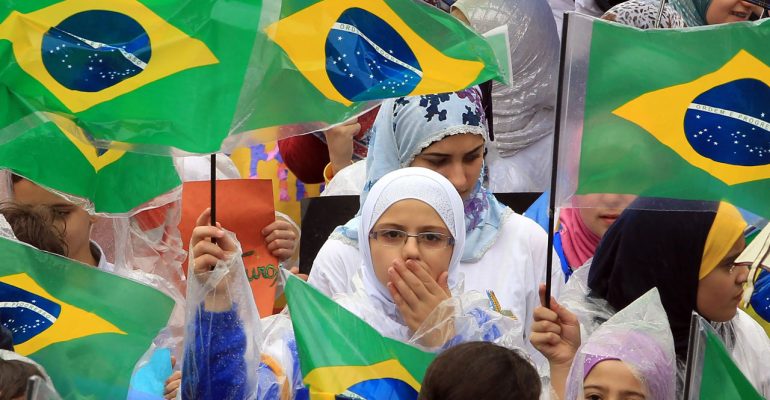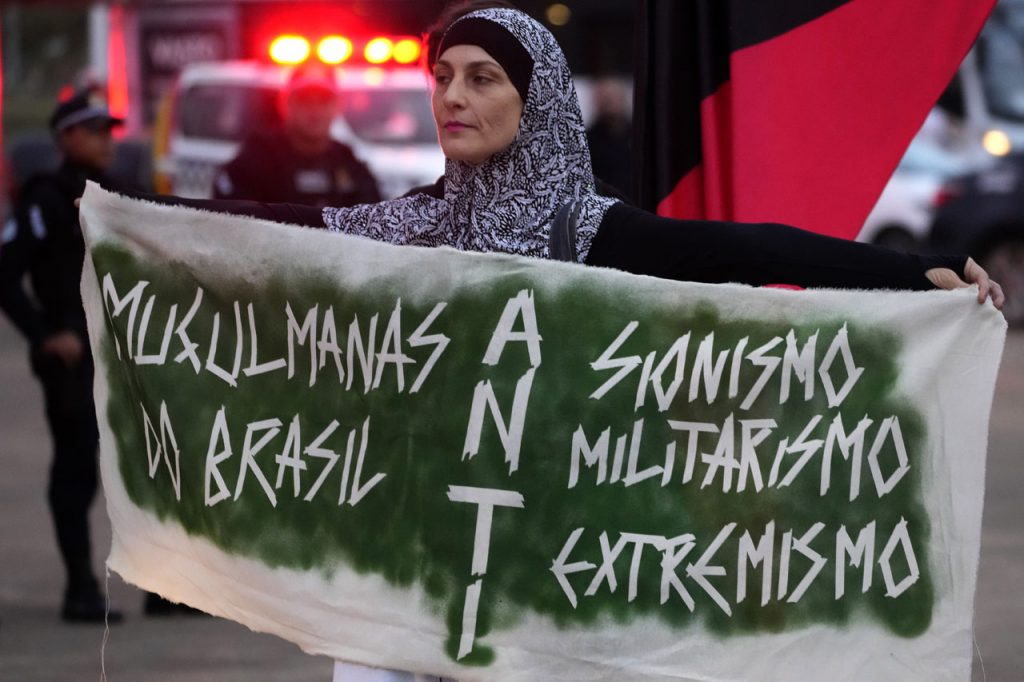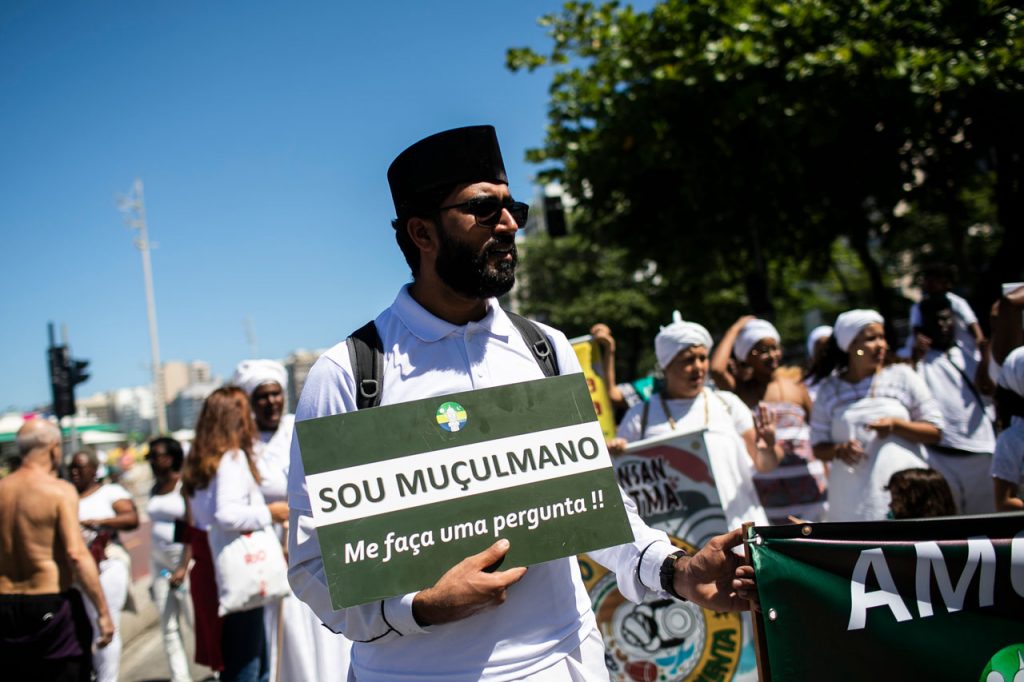Brazilian Muslims face growing Islamophobia over Gaza war
December 31, 2023 2024-03-17 17:47Brazilian Muslims face growing Islamophobia over Gaza war

Brazilian Muslims face growing Islamophobia over Gaza war
A survey released last month from the Anthropology Group on Islamic and Arab Contexts — an organization based at the University of São Paulo — found that reports of harassment among Muslim Brazilians have been widespread since the war began. The survey suggests approximately 60 percent of Brazilian Muslims experienced religious intolerance.
An estimated 70 percent of respondents said they knew someone who experienced religious intolerance since October 7, when the Palestinian group Hamas launched an attack on southern Israel, killing 1,140 people.
Israel has since led a military offensive against Gaza, a Palestinian enclave, killing more than 21,000 people. That response has raised human rights concerns, with United Nations experts warning of a “grave risk of genocide”.

While Palestinians are an ethnic group — and not a religious one — the University of São Paulo’s Professor Francirosy Barbosa found that the events of October 7 resulted in incidents of religious intolerance in Brazil, as Palestinian identity was conflated with Muslim identity.
She led November’s survey of 310 Muslim Brazilians. Respondents, she explained, reported receiving insults that reflected tensions in the Gaza war.
“Many Muslim women told us they are now called things like ‘Hamas daughter’ or ‘Hamas terrorist’,” she told Al Jazeera.
The survey, conducted online, also found that many of the respondents also had firsthand experience with religious intolerance.
“About 60 percent of the respondents affirmed that they suffered some kind of offence, either on social media or in their daily lives at work, at home or in public spaces,” Barbosa said.
Women in particular, the study noted, reported slightly higher rates of religious intolerance.
Brazil is predominantly Christian, home to an estimated 123 million Catholics — more than any other country in the world. But it has a long-standing, if smaller, Muslim population. Academics believe Islam arrived in the country with the transatlantic slave trade, as kidnapped African Muslims continued to practice their religion in their new surroundings.
One group of enslaved Muslim Brazilians even launched a rebellion against the government in 1835, called the Malê uprising — a term derived from the Yoruba word for Muslim.

Brazil’s Muslim population grew with waves of immigration in the late 19th and 20th centuries, particularly after the collapse of the Ottoman Empire. Arab immigrants, particularly from Lebanon, Syria and Palestine, came to know Brazil as their home.
The exact number of Muslims in Brazil today is unknown. The 2010 census counted 35,167 people identified as Muslim, but in the years since, other estimates have come out, setting the population as high as 1.5 million.
More information on: AlJazeera








